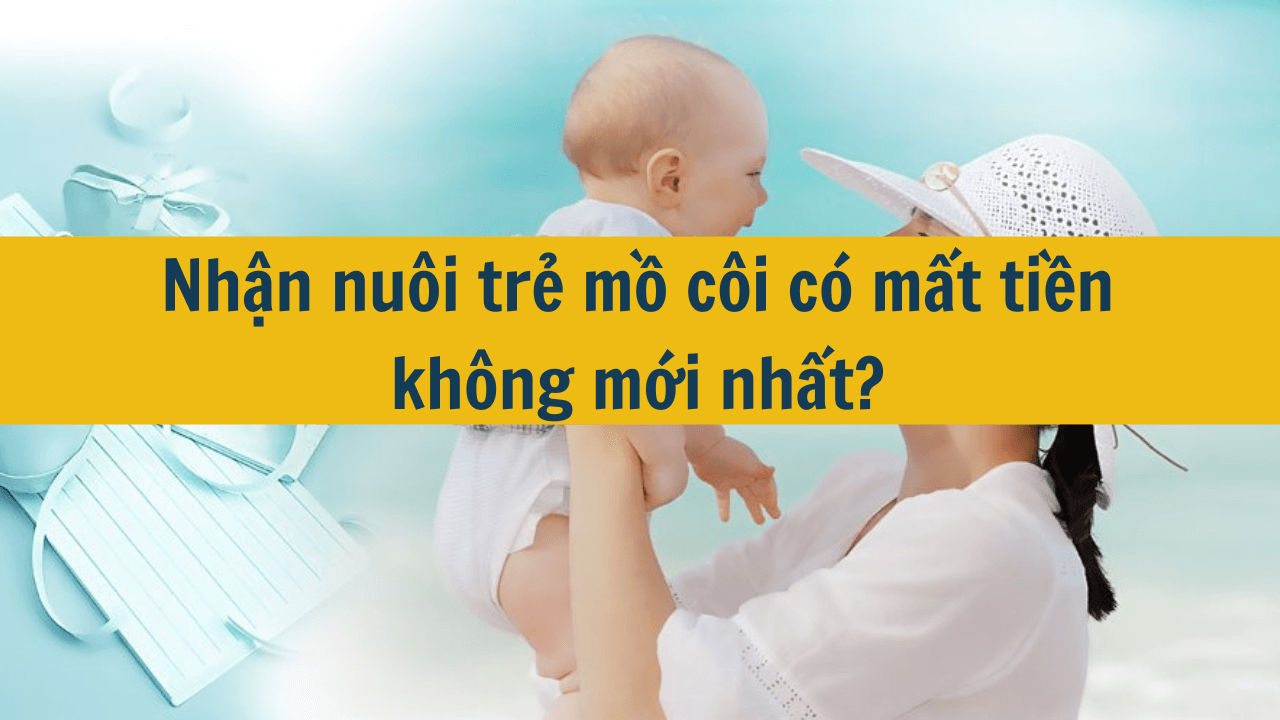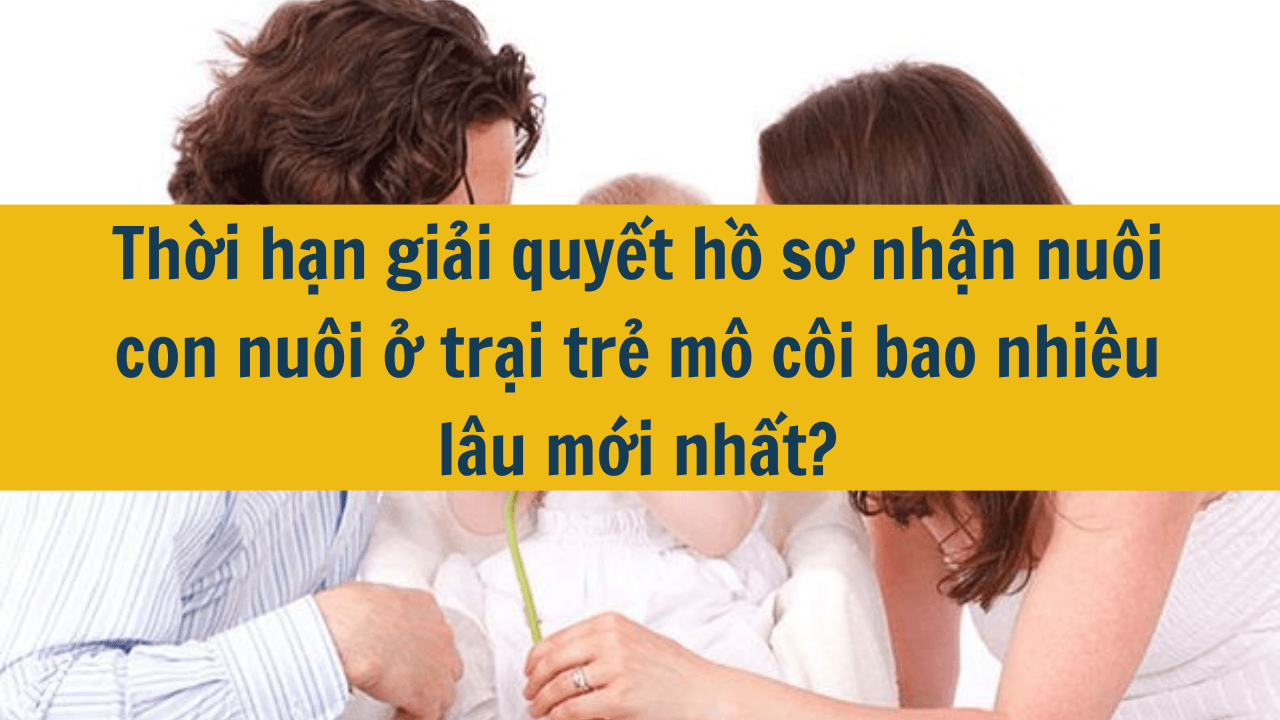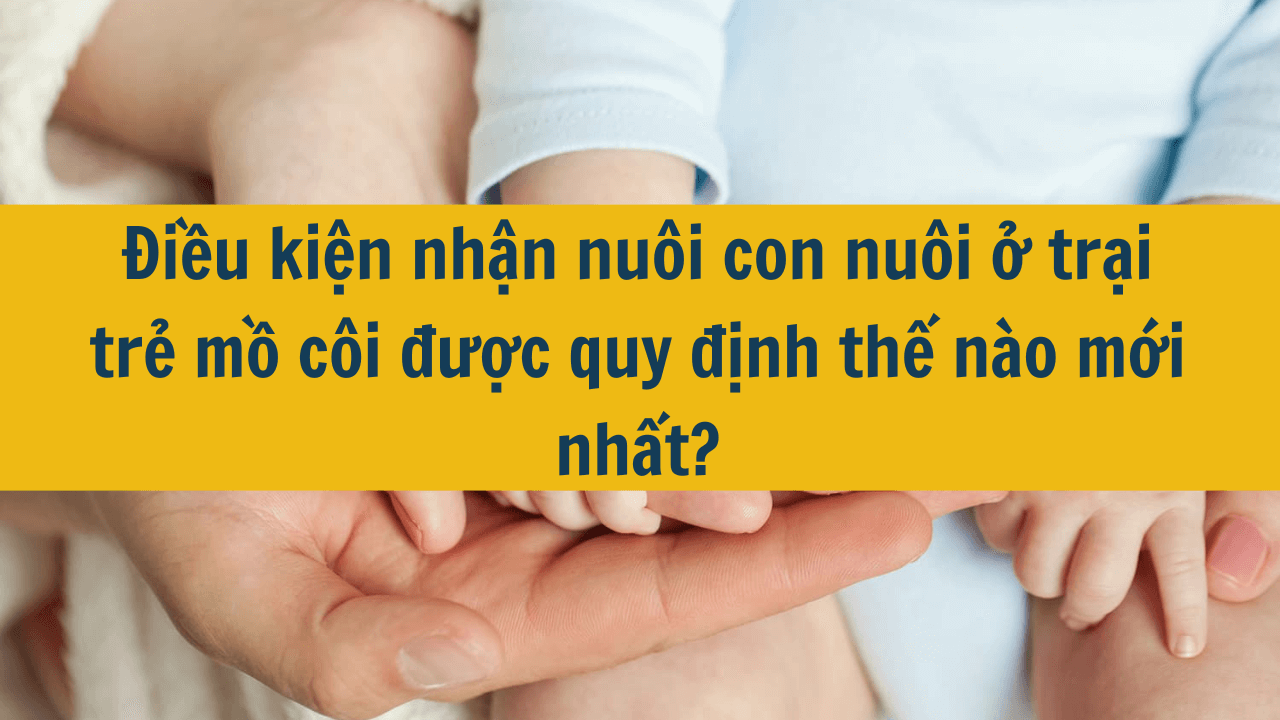 Tìm kiếm
Tìm kiếm
Chương 1 Nghị định 19/2011/NĐ-CP hướng dẫn Luật Nuôi con nuôi: Những quy định chung
| Số hiệu: | 19/2011/NĐ-CP | Loại văn bản: | Nghị định |
| Nơi ban hành: | Chính phủ | Người ký: | Nguyễn Tấn Dũng |
| Ngày ban hành: | 21/03/2011 | Ngày hiệu lực: | 08/05/2011 |
| Ngày công báo: | 05/04/2011 | Số công báo: | Từ số 171 đến số 172 |
| Lĩnh vực: | Quyền dân sự | Tình trạng: | Còn hiệu lực |
TÓM TẮT VĂN BẢN
Lệ phí đăng ký nuôi con nuôi trong nước là 400.000đ/trường hợp
Ngày 21/3/2011, Chính phủ đã ban hành Nghị định số 19/2011/NĐ-CP quy định chi tiết và hướng dẫn thi hành một số điều của Luật Nuôi con nuôi. Theo đó, lệ phí đăng ký nuôi con nuôi trong nước là 400.000 đồng/trường hợp; nuôi con nuôi nước ngoài là 9 triệu đồng/trường hợp; đăng ký nuôi con nuôi tại Cơ quan đại diện là 3 triệu đồng/trường hợp.
Các trường hợp được miễn lệ phí đăng ký nuôi con nuôi trong nước bao gồm: Cha dượng hoặc mẹ kế nhận con riêng của vợ/chồng làm con nuôi; cô, cậu, dì, chú, bác ruột nhận cháu làm con nuôi; nhận con nuôi ở vùng sâu, vùng xa.
Cụ thể, giảm 50% mức lệ phí đăng ký nuôi con nuôi nước ngoài đối với trường hợp cha dượng hoặc mẹ kế nhận con riêng của vợ/chồng làm con nuôi; cô, cậu, dì, chú bác ruột nhận cháu làm con nuôi. Trong trường hợp nhận 2 trẻ em trở lên là anh chị em ruột làm con nuôi thì từ trẻ thứ 2 trở đi được giảm 50% mức lệ phí đăng ký nuôi con nuôi nước ngoài.
Nghị định cũng ghi nhận các trường hợp nuôi con nuôi thực thực tế mà chưa đăng ký, cụ thể, việc nuôi con nuôi đã phát sinh tên thực tế giữa công dân Việt Nam với nhau mà chưa đăng ký trước ngày 01/01/2011, nếu đáp ứng các điều kiện quy định thì được đăng ký kể từ ngày 01/01/2011 đến ngày 31/12/2015 tại Ủy ban nhân dân (UBND) cấp xã, nơi thường trú của cha mẹ nuôi và con nuôi.
Về thẩm quyền đăng ký việc nuôi con nuôi, Nghị định quy định cụ thể như sau: Đối với việc nuôi con nuôi trong nước, UBND cấp xã, nơi thường trú của người được nhận làm con nuôi thực hiện đăng ký việc nuôi con nuôi. Việc nuôi con nuôi nước ngoài do UBND cấp tỉnh nơi thường trú của người được nhận làm con nuôi quyết định.
Trường hợp cha dượng hoặc mẹ kế nhận con riêng của vợ/chồng làm con nuôi; cô, dì, chú, bác ruột nhận cháu làm con nuôi hoặc có sự thỏa thuận giữa người nhận con nuôi với cha mẹ đẻ hoặc người giám hộ của trẻ thì UBND cấp xã nơi thường trú của người nhận con nuôi thực hiện việc đăng ký.
Nghị định này có hiệu lực thi hành kể từ ngày 08/5/2011; bãi bỏ các quy định tại Chương IV, từ điều 35 đến Điều 64, Điều 71 và các quy định khác về nuôi con nuôi có yếu tố nước ngoài tại Nghị định số 68/2002/NĐ-CP ngày 10/7/2002; Từ điều 25 đến Điều 28 và những quy định khác về trình tự, thủ tục đăng ký nuôi con nuôi tại Nghị định số 158/2005/NĐ-CP ngày 27/12/2005…
Văn bản tiếng việt
Văn bản tiếng anh
1. Nghị định này quy định chi tiết việc tiếp nhận, quản lý, sử dụng hỗ trợ nhân đạo để nuôi dưỡng, chăm sóc, giáo dục trẻ em có hoàn cảnh đặc biệt theo Điều 7; thẩm quyền thu, mức thu, việc miễn, giảm, chế độ quản lý, sử dụng lệ phí đăng ký nuôi con nuôi, chi phí giải quyết nuôi con nuôi nước ngoài theo Điều 12; thủ tục giải quyết việc nuôi con nuôi giữa công dân Việt Nam với công dân của nước láng giềng thường trú ở khu vực biên giới theo Điều 42; mức thu, chế độ quản lý, sử dụng lệ phí và thủ tục cấp, gia hạn, sửa đổi giấy phép hoạt động của tổ chức con nuôi nước ngoài tại Việt Nam theo Điều 43; thủ tục đăng ký việc nuôi con nuôi giữa công dân Việt Nam với nhau trước ngày 01 tháng 01 năm 2011 mà chưa đăng ký theo quy định tại Điều 50 của Luật Nuôi con nuôi.
2. Nghị định này hướng dẫn thi hành một số vấn đề về thẩm quyền, trình tự, thủ tục giải quyết việc nuôi con nuôi trong nước, nuôi con nuôi tại Cơ quan đại diện Việt Nam ở nước ngoài (sau đây gọi là Cơ quan đại diện), nuôi con nuôi có yếu tố nước ngoài theo các Điều 9, 15, 17, 18, 20, 21, 22, 28, 30, 31, 32, 33, 34, 36 của Luật Nuôi con nuôi; đăng ký lại việc nuôi con nuôi và công nhận việc nuôi con nuôi đã đăng ký tại cơ quan có thẩm quyền của nước ngoài.
Thẩm quyền đăng ký việc nuôi con nuôi được thực hiện theo quy định tại Điều 9 của Luật Nuôi con nuôi và quy định cụ thể sau đây:
1. Đối với việc nuôi con nuôi trong nước, thì Ủy ban nhân dân xã, phường, thị trấn (sau đây gọi là Ủy ban nhân dân cấp xã), nơi thường trú của người được nhận làm con nuôi thực hiện đăng ký việc nuôi con nuôi.
Trường hợp cha dượng hoặc mẹ kế nhận con riêng của vợ hoặc chồng làm con nuôi; cô, cậu, dì, chú, bác ruột nhận cháu làm con nuôi hoặc có sự thỏa thuận giữa người nhận con nuôi với cha mẹ đẻ hoặc người giám hộ của trẻ em được nhận làm con nuôi, thì Ủy ban nhân dân cấp xã thường trú của người nhận con nuôi thực hiện đăng ký việc nuôi con nuôi.
Trường hợp trẻ em bị bỏ rơi chưa chuyển vào cơ sở nuôi dưỡng được nhận làm con nuôi, thì Ủy ban nhân dân cấp xã nơi lập biên bản xác nhận tình trạng trẻ em bị bỏ rơi thực hiện đăng ký việc nuôi con nuôi; trường hợp trẻ em ở cơ sở nuôi dưỡng được nhận làm con nuôi, thì Ủy ban nhân dân cấp xã nơi có trụ sở của cơ sở nuôi dưỡng thực hiện đăng ký việc nuôi con nuôi.
2. Đối với việc nuôi con nuôi nước ngoài, thì Ủy ban nhân dân tỉnh, thành phố trực thuộc Trung ương (sau đây gọi là Ủy ban nhân dân cấp tỉnh), nơi thường trú của người được nhận làm con nuôi quyết định cho người đó làm con nuôi; trường hợp trẻ em ở cơ sở nuôi dưỡng được nhận làm con nuôi, thì Ủy ban nhân dân cấp tỉnh, nơi có trụ sở của cơ sở nuôi dưỡng trẻ em quyết định cho trẻ em đó làm con nuôi.
Sở Tư pháp thực hiện đăng ký việc nuôi con nuôi nước ngoài sau khi có quyết định của Ủy ban nhân dân cấp tỉnh.
3. Đối với việc nuôi con nuôi giữa công dân Việt Nam với nhau tạm trú ở nước ngoài, thì Cơ quan đại diện nơi tạm trú của người được nhận làm con nuôi hoặc của người nhận con nuôi thực hiện đăng ký việc nuôi con nuôi; trường hợp cả hai bên tạm trú ở nước không có Cơ quan đại diện, thì người nhận con nuôi nộp hồ sơ đăng ký việc nuôi con nuôi tại Cơ quan đại diện nào thuận tiện nhất đối với họ.
1. Trẻ em khuyết tật, trẻ em mắc bệnh hiểm nghèo được nhận đích danh làm con nuôi theo quy định tại điểm d khoản 2 Điều 28 của Luật Nuôi con nuôi gồm trẻ em bị sứt môi hở hàm ếch; trẻ em bị mù một hoặc cả hai mắt; trẻ em bị câm, điếc; trẻ em bị khoèo chân, tay; trẻ em không có ngón hoặc bàn chân, tay; trẻ em nhiễm HIV; trẻ em mắc các bệnh về tim; trẻ em bị thoát vị rốn, bẹn, bụng; trẻ em không có hậu môn hoặc bộ phận sinh dục; trẻ em bị các bệnh về máu; trẻ em mắc bệnh cần điều trị cả đời; trẻ em bị khuyết tật khác hoặc mắc bệnh hiểm nghèo khác mà cơ hội được nhận làm con nuôi bị hạn chế.
2. Trẻ em thuộc diện quy định tại khoản 1 Điều này, nếu được nhận làm con nuôi ở nước ngoài, thì được miễn thủ tục thông báo tìm gia đình thay thế theo quy định tại điểm c, điểm d khoản 2 Điều 15 và thủ tục giới thiệu trẻ em làm con nuôi theo quy định tại khoản 1 Điều 36 của Luật Nuôi con nuôi.
3. Trong trường hợp không có đủ căn cứ để xác định trẻ em thuộc diện quy định tại khoản 1 Điều này, Cục Con nuôi thuộc Bộ Tư pháp (sau đây gọi là Cục Con nuôi) lấy ý kiến của cơ quan có thẩm quyền theo quy định của Luật Người Khuyết tật đối với trẻ em khuyết tật hoặc của chuyên gia y tế đối với trẻ em mắc bệnh hiểm nghèo.
Việc hỗ trợ nhân đạo cho việc nuôi dưỡng, chăm sóc, giáo dục trẻ em có hoàn cảnh đặc biệt được thực hiện theo quy định tại Điều 7 của Luật Nuôi con nuôi và quy định cụ thể sau đây:
1. Cá nhân, tổ chức trong và ngoài nước được khuyến khích hỗ trợ nhân đạo cho việc nuôi dưỡng, chăm sóc, giáo dục trẻ em có hoàn cảnh đặc biệt tại Việt Nam thông qua chương trình, dự án bảo vệ, chăm sóc, nuôi dưỡng trẻ em tại cộng đồng, cơ sở nuôi dưỡng trẻ em; tài trợ cho Quỹ bảo trợ trẻ em hoặc hình thức khác theo quy định của pháp luật Việt Nam.
Khi hỗ trợ nhân đạo, cá nhân, tổ chức không được yêu cầu cơ sở nuôi dưỡng cho trẻ em làm con nuôi; cơ sở nuôi dưỡng không được cam kết cho trẻ em làm con nuôi vì lý do đã nhận hỗ trợ nhân đạo.
2, Bộ Lao động - Thương binh và Xã hội hướng dẫn, chỉ đạo, kiểm tra việc tiếp nhận, quản lý và sử dụng hỗ trợ nhân đạo để nuôi dưỡng, chăm sóc, giáo dục trẻ em có hoàn cảnh đặc biệt.
3. Tổ chức con nuôi nước ngoài được cấp phép hoạt động tại Việt Nam không được hỗ trợ trực tiếp cho cơ sở nuôi dưỡng được chỉ định cho trẻ em làm con nuôi ở nước ngoài.
1. Phiếu lý lịch tư pháp, giấy khám sức khỏe, văn bản xác nhận hoàn cảnh gia đình, tình trạng chỗ ở, điều kiện kinh tế của người nhận con nuôi trong nước theo quy định tại Điều 17 của Luật Nuôi con nuôi và giấy tờ quy định tại điểm b, điểm đ khoản 1 Điều 21 của Nghị định này có giá trị sử dụng nếu được cấp chưa quá 06 tháng, tính đến ngày nộp hồ sơ tại Ủy ban nhân dân cấp xã.
2. Phiếu lý lịch tư pháp, văn bản xác nhận tình trạng sức khỏe, bản điều tra về tâm lý, gia đình, văn bản xác nhận thu nhập và tài sản của người nhận trẻ em Việt Nam làm con nuôi ở nước ngoài theo quy định tại Điều 31 của Luật Nuôi con nuôi có giá trị sử dụng nếu được cấp chưa quá 12 tháng, tính đến ngày nộp hồ sơ tại Cục Con nuôi.
3. Phiếu lý lịch tư pháp của người đứng đầu tổ chức con nuôi nước ngoài theo quy định tại điểm e và của người dự kiến đứng đầu Văn phòng con nuôi nước ngoài tại Việt Nam theo quy định tại điểm g khoản 1 Điều 31 của Nghị định này có giá trị sử dụng nếu được cấp chưa quá 06 tháng, tính đến ngày nộp hồ sơ tại Cục Con nuôi.
GENERAL PROVISIONS
Article 1. Scope of regulation
1. This Decree provides in detail for receiption, management, usage of humanitarian aids to nurture, care, and educate children in special circumstances upon Article 7; authority for the collecttion, rate, the exemption, reduction, usage and management regime of adoption registration fee, expenses for settling inter-country adoption arcording to Article 12; procedures of adoption settling between Vietnamese citizens and neighboring countries’ citizens permanently residing in border areas referred to Article 42; rate, usage and management regime of fee and procedures of granting, extending, modifying the operation licenses of foreign adoption agencies in Vietnam referred to Article 43; procedures for adoption registration between Vietnamese citizens before the date of January 01, 2011 but have not yet registered referred to Article 50 of Law on Adoption.
2. This Decree guides for implementation of a number of issues on competence, sequence, procedures for settling domestic adoption, adoption at the Vietnamese representative agencies in foreign country (hereinafter called as the representative agencies), adoption involving foreign factors under Article 9, 15, 17, 18, 20, 21, 22, 28, 30, 31, 32, 33, 34, 36 of Law on Adoption; re-registration and recognizatiom of adoption which was registered at competent agencies of foreign countries.
Article 2. Competence for adoption registration
Competence for adoption registration implemented in accordance with provision in Article 9 of Law on Adoption and the following specific provisions:
1. For domestic adoption, the People’s Committees of Commune, Ward, Township (hereinafter called as The Commune-level People’s Committees) of place in which adoptee permanently residing are competent to register adoption.
In case stepfathers or stepmothers allow their wife or husband’s step-children to be their adoptees; natural aunts, uncles allow their nephews, nieces to be their adoptees or having an agreement between adopting person and natural parents or guardian of children allowed to be adoptees, the Commune-level People’s Committees of place in which adopting persons permanently residing are competent to register adoption.
In case abandoned children who have not been sent to the nurturing centers be adopted, the Commune-level People’s Committees which made the confirming report on abandoned children’s status are competent to register adoption; in case children living in the nurturing centers be adopted, the Commune-level People’s Committees of place where the nurturing centers locate are competent to register adoption.
2. Regarding inter-country adoption, the People’s Committees of centrally-affiliated Provinces, Cities (hereinafter called the Provincial-level People’s Committees), in which the adopted persons are permanently residing shall decide to let such person to be adoptee; in case children living in the nurturing centers allowed to be adoptees, the Provincial-level People’s Committees of place where the nurturing centers locate shall decide to let such children to be adoptee.
Departments of Justice implements for inter-country adoption registeration after having the decision of Provincial-level People’s Committees.
3. Regarding adoption where the adopters and adoptees are Vietnamese citizens who temporarily residing oversea, the Representative agencies of place where the adopters or adoptees temporarily residing are competent to register adoption; in case both temporarily reside in the country where has no representative agency, the adopting persons may apply for adoption registration at a certain representative agency that is most convenient for them.
Article 3. Disable, dangerous disease children are specific adopted
1. Disable, dangerous disease children are specific adopted under provisions in point d clause 2 Article 28 of Law on Adoption include: children with cleft lip and clept palate, children who are blinded with one or two eyes; mutism, deaf; dumb; children with curved arms or legs, children with missing fingers, hands, foot (feet), toes, children infected with HIV; children with heart diseases; chidren with navel, groin, belly hernia; children without an anus or sexual organ; children with blood disease; chidren with diseases requiring life-long treatment; chidren with other disabilities or dangerous disease which restricting the chances of adoption.
2. Children who are subjects provided in clause 1 of this Article, if they are inter-country adopted, shall be exempted form announcement procedures of finding a substitute family provided in point c, point d clause 2 of Article 15 and procedures of introducting children for adoption referred to provision in clause 1 Article 36 of Law on Adoption.
3. In case where there are not enough proofs to determine that children are subjects provided in clause 1 of this Article, the Department of Adoption under management of the Ministry of Justice (hereinafter called as Department of Adoption) shall collects opinions of the competent agencies under provision of Law on Disable People for disable children or of the medical experts for dangerous disease children.
Article 4. Receiption, management, and use of humanity assistance in order to nurture, care of, and educate children with disadvantaged circumstances
The humanitarian aids for nurturing, caring for and educating children in disadvantaged circumstances implemented referred to provision in Article 7 of Law on Adoption and the following specific provisions:
1. Domestic, foreign individuals, organizations encouraged to provide humanitarian aids for nurturing, caring for, and educating children in disadvantaged circumstances in Vietnam via programs, protective projects, care for, nurture of children in communities, nurturing centers; sponsor for children protective funds or other methods under the laws of Vietnam.
While providing for humanitarian aids, individuals, and organizations do not request the nurturing centers to give children for adoption; the nurturing centers do not commit to give children for adoption because they received humanitarian aids .
2. The Ministry of Labour, War invalids and Social Affairs guides, directs, supervises over the receiption, management, and usage of humanity aids to nurture, care for, and educate children in disadvantaged circumstances.
3. The foreign adoption agencies are authorized to operate in Vietnam shall not allowed to provide directly assistance to the nurturing centers that assigned to allow children to be overseas adopted.
Article 5. Time of valid of dossiers
1. The judicial record, health certificate, documents certifying of the family status, accommodation circumstances, economic conditions of domestic adopters referred to Article 17 of Law on Adoption and dossiers provided in point b, point đ clause 1 Article 21 of this Decree shall be valid if they are granted not excess 06 months, from the date of applying dossiers at the Commune-level People’s Committees.
2. The judicial record, health certificate, a completed questionnaire on psychology, family, income and property certificate of persons adopting Vietnamese children to be overseas adoptees referred to provision in Article 31 of Law on Adoption shall be valid if they are granted not excess 12 months, from the date of applying dossiers at the Department of Child Adoption.
3. The judicial record sheet of head of the foreign adoption agencies referred to point e and of the persons expected to be head of the foreign adoption agencies referred to point g clause 1 Article 31 of this Decree shall be valid if they are granted not excess 6 months, from the date of applying dossiers at the Department of Child Adoption.
Văn bản liên quan
Cập nhật
Điều 2. Thẩm quyền đăng ký việc nuôi con nuôi
Điều 3. Trẻ em khuyết tật, trẻ em mắc bệnh hiểm nghèo được nhận đích danh làm con nuôi
Điều 5. Thời hạn có giá trị sử dụng của giấy tờ
Điều 6. Lập hồ sơ và danh sách trẻ em cần tìm gia đình thay thế
Điều 7. Hồ sơ của người nhận con nuôi
Điều 8. Trách nhiệm lấy ý kiến của những người liên quan về việc nuôi con nuôi
Điều 9. Yêu cầu về kiểm tra hồ sơ và lấy ý kiến của những người liên quan
Điều 10. Thủ tục đăng ký việc nuôi con nuôi
Điều 12. Thông báo danh sách các nước miễn hợp pháp hóa lãnh sự đối với giấy tờ, tài liệu
Điều 13. Hồ sơ của người nhận con nuôi
Điều 14. Hồ sơ của người được nhận làm con nuôi
Điều 16. Yêu cầu về xác nhận trẻ em có đủ điều kiện làm con nuôi ở nước ngoài
Điều 17. Thủ tục nộp và tiếp nhận hồ sơ của người nhận con nuôi nước ngoài
Điều 18. Yêu cầu về kiểm tra, thẩm định hồ sơ của người nhận con nuôi nước ngoài
Điều 20. Yêu cầu về giới thiệu trẻ em làm con nuôi ở nước ngoài
Điều 23. Đăng ký việc nuôi con nuôi thực tế
Điều 26. Hồ sơ đăng ký việc nuôi con nuôi
Điều 27. Thủ tục nộp hồ sơ và đăng ký việc nuôi con nuôi tại Cơ quan đại diện
Điều 28. Thông báo tình hình phát triển của con nuôi và theo dõi việc nuôi con nuôi
Điều 30. Ghi chú việc nuôi con nuôi đã đăng ký tại cơ quan có thẩm quyền của nước ngoài
Điều 39. Lệ phí đăng ký nuôi con nuôi
Điều 48. Đối tượng nộp, miễn nộp chi phí giải quyết nuôi con nuôi nước ngoài
Điều 2. Thẩm quyền đăng ký việc nuôi con nuôi
Điều 3. Trẻ em khuyết tật, trẻ em mắc bệnh hiểm nghèo được nhận đích danh làm con nuôi
Điều 5. Thời hạn có giá trị sử dụng của giấy tờ
Điều 6. Lập hồ sơ và danh sách trẻ em cần tìm gia đình thay thế
Điều 10. Thủ tục đăng ký việc nuôi con nuôi
Điều 11. Cơ sở nuôi dưỡng được cho trẻ em làm con nuôi nước ngoài
Điều 14. Hồ sơ của người được nhận làm con nuôi
Điều 16. Yêu cầu về xác nhận trẻ em có đủ điều kiện làm con nuôi ở nước ngoài
Điều 20. Yêu cầu về giới thiệu trẻ em làm con nuôi ở nước ngoài
Điều 30. Ghi chú việc nuôi con nuôi đã đăng ký tại cơ quan có thẩm quyền của nước ngoài
Điều 31. Hồ sơ của tổ chức con nuôi nước ngoài xin cấp phép hoạt động tại Việt Nam
Điều 38. Nguyên tắc thu, nộp, quản lý và sử dụng
Điều 39. Lệ phí đăng ký nuôi con nuôi
Điều 40. Mức thu lệ phí đăng ký nuôi con nuôi
Điều 41. Thẩm quyền thu lệ phí đăng ký nuôi con nuôi
Điều 42. Đối tượng phải nộp lệ phí đăng ký nuôi con nuôi
Điều 43. Đối tượng được miễn, giảm lệ phí đăng ký nuôi con nuôi
Điều 44. Chế độ sử dụng lệ phí đăng ký nuôi con nuôi
Điều 45. Mức thu, cơ quan thu lệ phí cấp, gia hạn, sửa đổi giấy phép của tổ chức con nuôi nước ngoài
Điều 46. Chế độ sử dụng lệ phí cấp, gia hạn, sửa đổi giấy phép của tổ chức con nuôi nước ngoài
Bài viết liên quan
Nhận nuôi trẻ mồ côi có mất tiền không mới nhất 2025?

Nhận nuôi trẻ mồ côi có mất tiền không mới nhất 2025?
Việc nhận nuôi trẻ mồ côi là một hành động nhân văn, mang lại cơ hội cho trẻ em không nơi nương tựa được sống trong môi trường gia đình yêu thương và chăm sóc. Tuy nhiên, nhiều người vẫn thắc mắc về các chi phí liên quan đến thủ tục nhận nuôi, liệu có phải trả tiền khi nhận nuôi một trẻ em mồ côi hay không. Theo quy định mới nhất năm 2025, việc nhận nuôi trẻ mồ côi không yêu cầu phải trả một khoản tiền nào cho quá trình này, nhưng vẫn có những chi phí phát sinh trong quá trình làm thủ tục pháp lý. Bài viết dưới đây sẽ cung cấp thông tin chi tiết về các khoản chi phí và các quy định liên quan đến việc nhận nuôi trẻ mồ côi trong năm 2025. 27/12/2024Thời hạn giải quyết hồ sơ nhận nuôi con nuôi ở trại trẻ mô côi bao nhiêu lâu mới nhất 2025?

Thời hạn giải quyết hồ sơ nhận nuôi con nuôi ở trại trẻ mô côi bao nhiêu lâu mới nhất 2025?
Việc nhận nuôi con nuôi tại các trại trẻ mồ côi là một quy trình phức tạp, yêu cầu thời gian để đảm bảo rằng mọi bước đều được thực hiện đúng pháp luật và bảo vệ quyền lợi của trẻ em. Một trong những vấn đề quan trọng mà các cá nhân, gia đình quan tâm khi thực hiện thủ tục nhận nuôi là thời gian giải quyết hồ sơ. Theo các quy định pháp lý mới nhất trong năm 2025, thời gian giải quyết hồ sơ nhận nuôi con nuôi ở các trại trẻ mồ côi có thể thay đổi tùy theo từng trường hợp cụ thể. Bài viết này sẽ cung cấp thông tin chi tiết về thời gian giải quyết hồ sơ nhận nuôi con nuôi và các yếu tố ảnh hưởng đến quá trình này. 26/12/2024Điều kiện nhận nuôi con nuôi ở trại trẻ mồ côi được quy định thế nào mới nhất 2025?

Điều kiện nhận nuôi con nuôi ở trại trẻ mồ côi được quy định thế nào mới nhất 2025?
Nhận nuôi con nuôi tại các trại trẻ mồ côi không chỉ là một hành động mang tính nhân văn, mà còn là một quy trình pháp lý nghiêm ngặt nhằm bảo vệ quyền lợi của trẻ em và gia đình nhận nuôi. Để có thể thực hiện việc nhận nuôi một trẻ em tại các cơ sở nuôi dưỡng này, các cá nhân hoặc gia đình cần đáp ứng một số điều kiện pháp lý cụ thể theo quy định của pháp luật Việt Nam. Những điều kiện này được thiết kế nhằm đảm bảo rằng việc nhận nuôi sẽ mang lại một môi trường sống ổn định và phát triển cho trẻ em. Bài viết này sẽ cung cấp thông tin chi tiết về các điều kiện nhận nuôi con nuôi ở trại trẻ mồ côi mới nhất năm 2025, giúp các bậc phụ huynh và cá nhân quan tâm hiểu rõ quy trình và các yêu cầu cần thiết. 26/12/2024Thủ tục nhận nuôi con nuôi ở trại trẻ mồ côi được thực hiện thế nào mới nhất 2025?

Thủ tục nhận nuôi con nuôi ở trại trẻ mồ côi được thực hiện thế nào mới nhất 2025?
Việc nhận nuôi con nuôi tại các trại trẻ mồ côi là một trong những phương thức giúp trẻ em có hoàn cảnh khó khăn được bảo vệ và phát triển trong một gia đình mới. Tuy nhiên, thủ tục nhận nuôi con nuôi tại các trại trẻ mồ côi không phải là một quy trình đơn giản, mà cần tuân theo các quy định pháp lý nghiêm ngặt để bảo đảm quyền lợi của trẻ em và gia đình nhận nuôi. Trong năm 2025, pháp luật Việt Nam tiếp tục điều chỉnh và hoàn thiện các quy trình này để đảm bảo tính hợp pháp, minh bạch và nhân đạo. Bài viết này sẽ giải thích chi tiết về các bước thủ tục nhận nuôi con nuôi tại trại trẻ mồ côi, cũng như những điều kiện mà các cá nhân, gia đình cần đáp ứng để có thể thực hiện việc nhận nuôi một cách hợp pháp. 26/12/2024Thủ tục nhận nuôi con nuôi trong nước mới nhất 2025


 Nghị định 19/2011/NĐ-CP hướng dẫn Luật Nuôi con nuôi (Bản Word)
Nghị định 19/2011/NĐ-CP hướng dẫn Luật Nuôi con nuôi (Bản Word)
 Nghị định 19/2011/NĐ-CP hướng dẫn Luật Nuôi con nuôi (Bản Pdf)
Nghị định 19/2011/NĐ-CP hướng dẫn Luật Nuôi con nuôi (Bản Pdf)